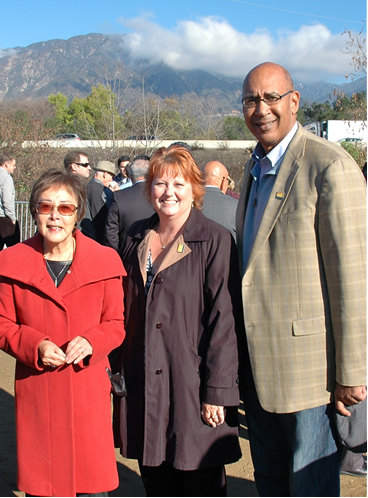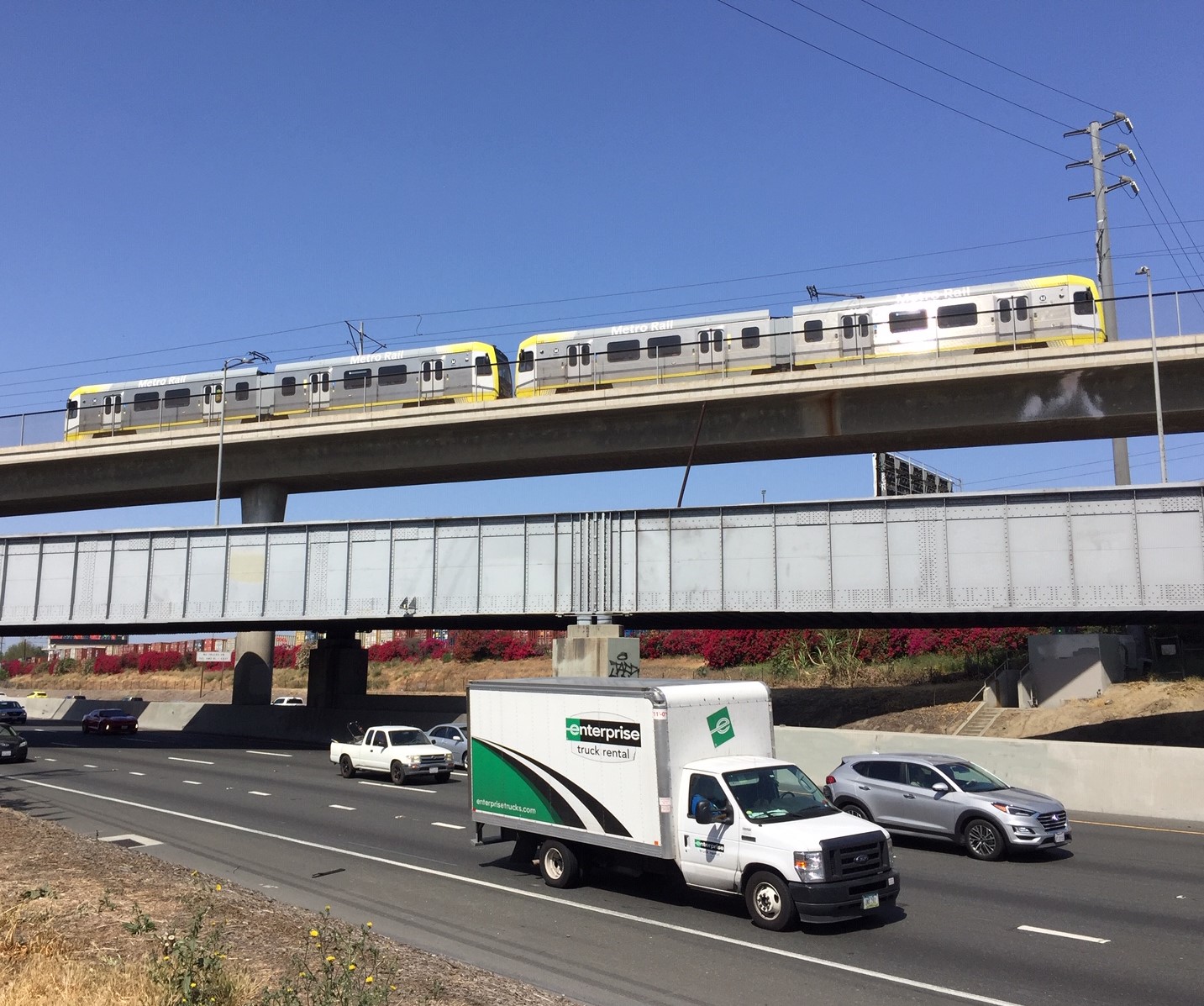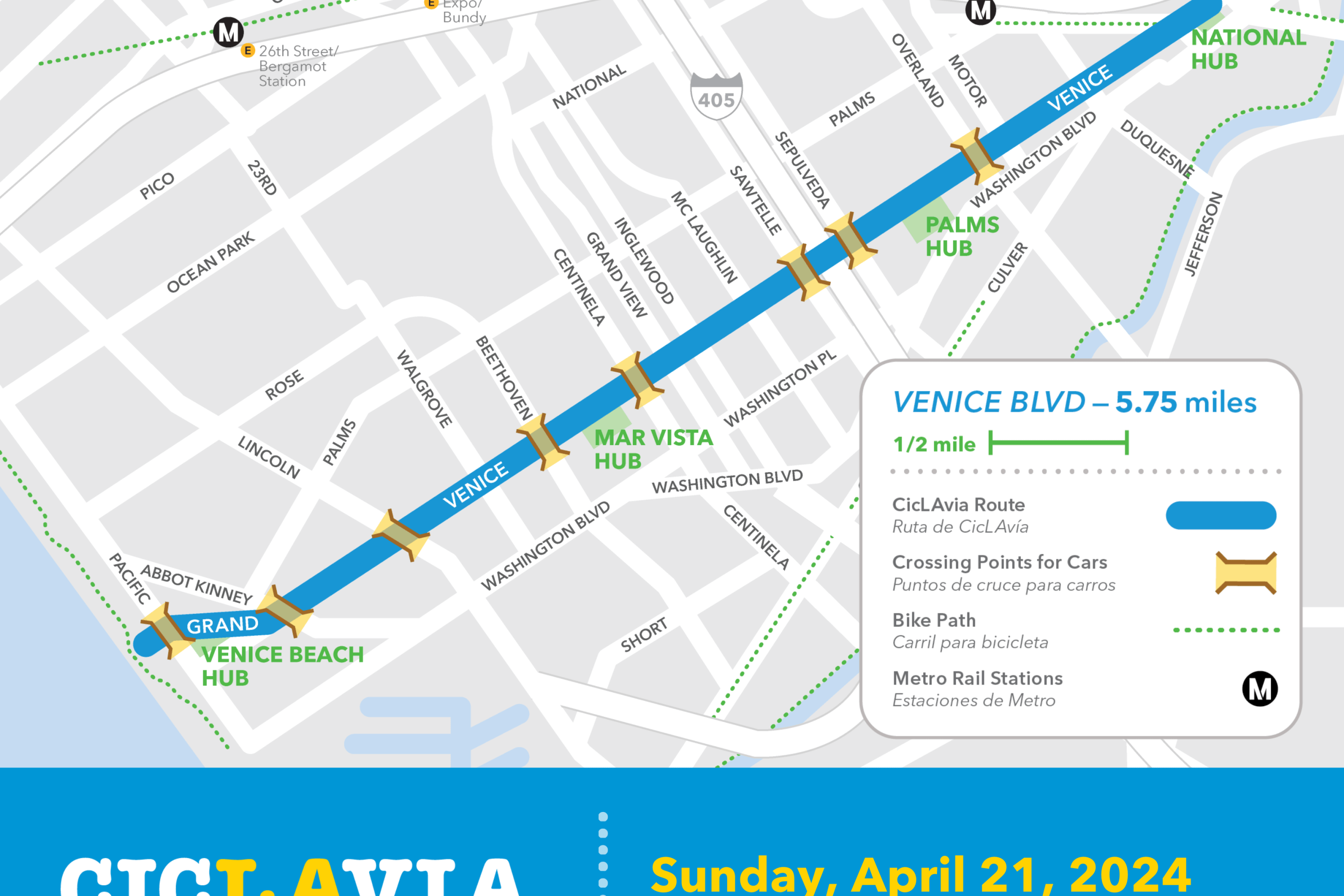Legislation Would Change Composition of Metro Board, Adding Two Appointees of State Legislature
3:55 PM PST on February 27, 2014
L.A. County residents have long complained that they don't receive a fair share of funds from Metro, noting that many transit projects take place inside of the City of Los Angeles. Now, legislation by Assemblyman Chris Holden, seeks to change that reality by adding to new seats to the Metro Board of Directors.

“Beginning with my tenure on the Pasadena City Council and continuing to my service in the California State Assembly, I have long heard complaints about the allocation of funding, and regional representation on the Los Angeles County Metropolitan Transportation Authority (Metro)," writes Holden. "Too frequently I hear that although all residents of Los Angeles County pay to fund county wide ballot measures, only select residents receive their fair share of the benefits. I felt this simmering discontent reach a boiling point last summer when the Metro Board amended Measure R’s expenditure plan to deemphasize projects that voters were convinced would be a priority when voting for the sales tax in 2008."
Assembly Bill 1941 would add two voting members who would be appointed by the Speaker of the State Assembly and the State Senate Committee on Rules.
Currently, the Metro Board is made up of 13 voting members. Five are county supervisors, one is the mayor of Los Angeles, three are appointed by the Mayor of Los Angeles, and four represent the local "Council of Governments." There is also a representative of Caltrans on the Board, but that position is non-voting. If AB 1941 becomes law, Metro would be the only transit agency with state appointed representatives. A report prepared by staff for today's Metro Board meeting encouraged the Board to vote against the legislation for that reason.
"While there may be no perfect solution to the allocation of limited resources to address what seem to be limitless needs, AB 1941 represents a dialogue about who does and does not have a voice in the planning of community’s infrastructure needs," Holden continued. "Many of us, while not a member of the Metro Board are heavily invested in the success of this agency and passage of another countywide measure to fund the county’s transportation priorities."
When Holden speaks of "de-emphasizing" projects, he is referring to Metro's efforts to speed up certain transit projects funded by the Measure R sales tax. When the Board voted last year on an acceleration plan, it specifically excluded the proposed I-710 Big Dig, the Gold Line Extension to Azusa and other projects.
Not surprisingly, Metro Board Members aren't excited by Holden's motion and they aren't shy about letting state officials know it. After the Board quickly and unanimously passed a motion against AB 1941, Streetsblog talked with some of the Board Members.
"Increasing Sacramento influence over regional transportation decisions, while Sacramento's investment in regional transportation needs is diminishing, makes no sense," writes Paul Krekorian, a Los Angeles City Councilmember and Mayoral Appointee to the Board. "This bill would simply diminish the City's role in meeting the needs of our residents and it should be rejected."
There has long been friction between the Board Members who represent the City of Los Angeles, or part of the City of Los Angeles, and ones from the rest of the County. One Metro staffer, who was speaking off the record, jokes that the only thing the County Supervisors and COG representatives can agree on is who their enemy is: whoever is the Mayor of Los Angeles. However, that doesn't mean that those not representing the city see AB 1941 as a good bill.
"The last thing we need on this already political board, is to inject two new players with no stakeholders and no constituents to answer to, only the politicos in Sacramento," writes Ara Najarian, Glendale City Councilmember and the representative to the Metro Board from the San Fernando Valley Council of Governments. "A huge mistake and not a well thought out piece of legislation. Now, if we wanted to add directors who actually had constituents to answer to...then fine."
"Ara's right. The Metro Board was blindsided by this motion, he (Holden) didn't work with us. He didn't even call us." responded Mike Bonin, a Los Angeles City Councilmember and another mayoral appointee in a further show of Board unity. "The Metro Board has traditionally fought efforts to change its composition, unless the change is being pushed by a broad coalition of citizens."
Bonin and Krekorian have introduced a Los Angeles City Council motion urging the legislature to reject Holden's proposal. The motion is seconded by City Council President Herb Wesson.
A fact sheet provided by Holden's office offers two different explanations for the need for AB 1941. It states that with the state mandating greenhouse gas reduction goals for municipalities throughout the state, that state representation on the Board would help Metro meet state goals. The fact sheet states:
California’s continuing efforts to develop regional solutions to greenhouse gas emissions and cut down on vehicle miles traveled requires the development of a comprehensive transportation solution. By adding a statewide perspective to the Board of LA Metro, California’s largest county will continue to develop sustainable solutions for the state’s transportation future.
A second potential explanation explains that many Metro projects have regional impacts outside of L.A. County, thus broader representation would be helpful for the agency to understand the impacts of its decisions. The fact sheet states:
These members, appointed by state leadership, will enhance the regional perspective required for a modern transportation board. Currently, projects including the SR 605 and SR 405 interchange project, the SR 14 carpool extension and the Metro Gold Line Foothill extension all require LA Metro to coordinate projects that extend to the county border and beyond.
Because legislators can only introduce a limited number of bills each session, it seems a little odd that Holden would use one of his to insure better representation on the Metro Board for people he doesn't represent. Holden's father was a major player at Metro for years. Nate Holden served as a Board Member of the Los Angeles County Transportation Commission, Metro's successor agency, and the Metro Board itself, when Metro still referred to itself as the Los Angeles County Metropolitan Transportation Authority.
In an ironic twist, Nate Holden is credited with leading the charge to increase the representation on the Metro Board by the City of Los Angeles from 2 members to 4 members in the late 1990's.
AB 1941 was referred to the "Local Program" committee and could be heard as soon as March 22.
Stay in touch
Sign up for our free newsletter
More from Streetsblog Los Angeles
Metro Committee Approves 710 Freeway Plan with Reduced Widening and “No Known Displacements”
Metro's new 710 Freeway plan is definitely multimodal, definitely adds new freeway lanes, and probably won't demolish any homes or businesses
Automated Enforcement Coming Soon to a Bus Lane Near You
Metro is already installing on-bus cameras. Soon comes testing, outreach, then warning tickets. Wilshire/5th/6th and La Brea will be the first bus routes in the bus lane enforcement program.




